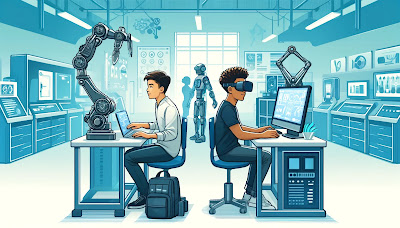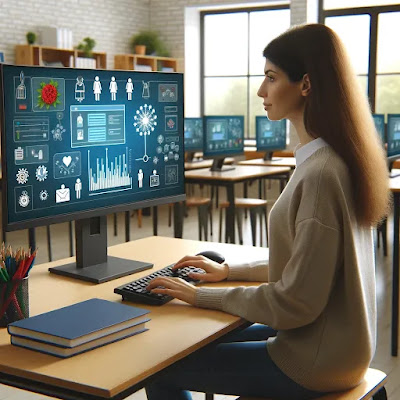Este artículo plantea una reflexión crítica sobre cómo la formación en Inteligencia Artificial (IA) puede facilitar una educación más inclusiva y adaptativa, preparando a los docentes para utilizar tecnologías avanzadas en sus futuras aulas.
La capacidad de la IA para personalizar el aprendizaje y adaptarse a las necesidades individuales de los estudiantes la convierte en una herramienta invaluable en la formación de futuros profesionales.
Este artículo explora la implementación de la IA como recurso educativo durante la formación inicial del profesorado, centrándose en un curso de la Universidad de Extremadura.
A través de una formación virtual, se analizó cómo 76 futuros docentes ampliaron su conocimiento sobre IA mientras cursaban la asignatura de TIC aplicadas a la educación en el Grado de Educación Infantil.
Utilizando un enfoque de investigación mixto, este estudio examinó las percepciones y experiencias de los participantes mediante cuestionarios ad hoc y el análisis de sus portafolios digitales.
Los resultados preliminares sugieren que los estudiantes perciben a la IA como una influencia positiva en el aprendizaje y se sienten capacitados para diseñar recursos educativos con el adecuado apoyo académico.
Este hallazgo subraya la necesidad de integrar de manera más profunda la IA en los planes de estudio de la formación docente, para alinear la educación con las exigencias de la cuarta revolución industrial y sus implicaciones para el futuro del trabajo y la interacción social.
CONSULTE EL ARTÍCULO COMPLETO AQUÍ
---
Cómo citar: Ayuso-del Puerto, D., y Gutiérrez-Esteban, P. (2022). La Inteligencia Artificial como Recurso Educativo durante la Formación Inicial del Profesorado. RIED-Revista Iberoamericana de Educación a Distancia, 25(2), pp. 347-362. https://doi.org/10.5944/ried.25.2.32332










